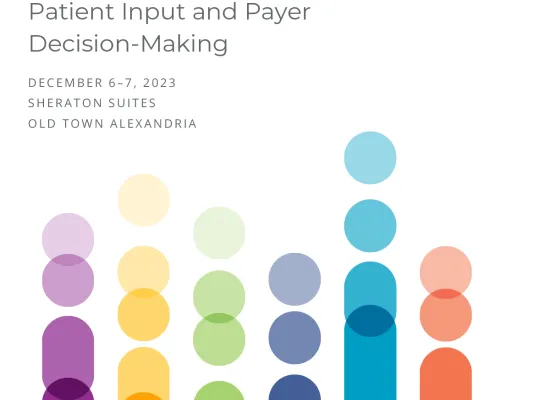
AMCP Releases Proceedings on Advancing Value-Based Contracting With Consensus Definitions, Strategies to Move Concept Forward
Alexandria, Va., Nov 2, 2017 — The Academy of Managed Care Pharmacy’s (AMCP) has released a consensus document on value-based contracting that includes a key stakeholder definition of VBC along with strategies to implement the innovative payment model. The newly released proceedings of the AMCP Partnership Forum, “Advancing Value-Based Contracting,” addresses issues discussed at the June 2017 event, including:
- A definition of VBC for facilitating discussion with key policy makers, regulators and other stakeholders;
- Strategies for advancing development and utilization of performance benchmarks;
- Best practices in evaluating, implementing and monitoring VBCs; and
- Action plans to mitigate legal and regulatory barriers to VBCs.
According to the proceedings, a consensus definition of VBC is: “A value-based contract is a written contractual agreement in which the payment terms for medication(s) or other health care technologies are tied to agreed-upon clinical circumstances, patient outcomes, or measures.”
Forum attendees also noted that one of greatest challenges with a VBC is selecting appropriate outcomes to measure and determining how much value to assign them. Outcomes should be easily measured, clinically relevant, and associated with financial and/or clinical improvements, they agreed. Examples include:
- Health care utilization rates (e.g., inpatient hospitalizations, emergency department visits)
- Hard clinical endpoints (e.g., myocardial infarctions, deaths)
- Cancer-free survival, progression-free survival
- Cure rates
- Adverse event rates
- Laboratory values (e.g., hemoglobin A1c [A1c] for patients with diabetes)
- Quality of life, activities of daily living (i.e., patient-reported outcomes)
- Medication adherence
- Medication persistence
Participants also agreed that FDA-specific federal rules and regulations need to be revised to enable payers and manufacturers to engage more broadly in VBCs. Some of the most important barriers include the Anti-Kickback Statute and the best price requirement of the Medicaid Drug Rebate Program, as the average manufacturer price [AMP] calculation may also be affected by VBCs.
The proceedings state that larger-scale implementation of VBCs may help justify pharmaceutical costs, ensuring the amount ultimately paid is linked to the value a product provides. For manufacturers, VBCs may assist with aligning contracting strategies with broader shifts occurring in the marketplace that emphasize compensation for value rather than volume. For payers, VBCs provide assurance that the financial cost is linked to tangible probability of a positive outcome.
More than 30 health care leaders representing health plans, integrated delivery systems, pharmacy benefit managers, data and analytics experts, and biopharmaceutical companies attended the two-day Forum. AMCP hosted the event in partnership with Amgen, Bristol-Myers Squibb, Lilly & Co., Merck, the National Pharmaceutical Council, Novartis, Premier, Pharmaceutical Research and Manufacturers of America, RxAnte, Takeda and Xcenda.
The proceedings are published in the November 2017 issue of AMCP’s Journal for Managed Care & Specialty Pharmacy, and available at http://bit.ly/2iF9pQH
Upcoming Events
AMCP offers a wide variety of educational opportunities, from events and webinars to online training.







